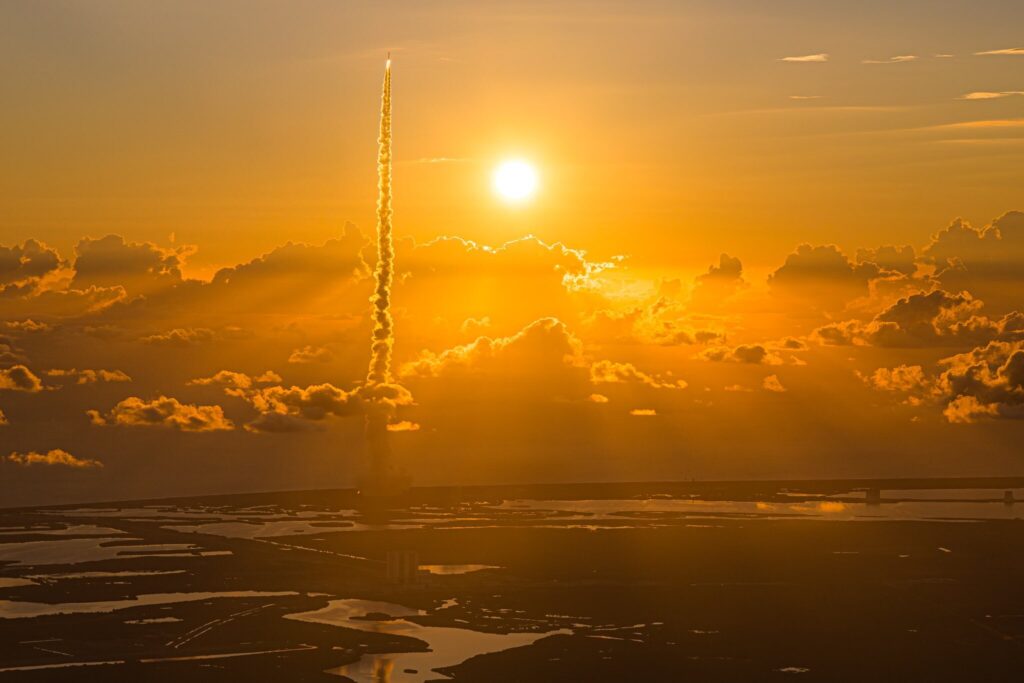On October 4, launch operator ULA conducted the second launch of the new Vulcan rocket. It almost ended in an accident due to problems with the boosters.

The Vulcan rocket was designed as a replacement for the Atlas V. The carrier has a two-stage design with the option of adding side solid rocket boosters. Its first stage uses methane as fuel and oxygen as oxidizer. The second stage operates on a hydrogen-oxygen pair. In its most powerful configuration, Vulcan will be able to launch up to 27 tons into low Earth orbit.
The first launch of Vulcan took place on January 8, 2024. The rocket sent the Peregrine spacecraft built by Astrobotic to the Moon. The launch itself was a success, but due to an accident, the vehicle never reached its target.
Originally, Vulcan was to send the Dream Chaser spacecraft to the ISS on its second mission. But due to the spaceplane not being ready by the scheduled deadline, ULA management replaced it with a mass simulator and an instrument kit. The decision was motivated by ULA’s desire to certify the rocket for use in missions ordered by the U.S. Space Force as soon as possible. Two successful launches are required.
The second launch of Vulcan took place on October 4. An anomaly occurred at the 35th second of the flight. In the live broadcast images, a plume of fire can be seen separating from one of the rocket’s two solid rocket boosters. This indicates damage to its nozzle. Because of this, booster separation took place almost 30 seconds later than specified in the flight plan.
A quick look at an abnormal part of today's Vulcan Cert-2 mission. Awaiting more information from ULA.
— D Wise (@dwisecinema) October 4, 2024
📸 – @NASASpaceflight
📺 – https://www.youtube.com/watch?v=ZPztD5zwgYY pic.twitter.com/mZTIlR6A6m
Fortunately for ULA, the Centaur upper stage had enough reserve to reach the desired orbit. It operated 20 seconds longer than planned. In the near future, the upper stage will perform a number of test maneuvers. After the engineers have the necessary information, the stage, along with the mass simulator, will be taken into a burial orbit.
After the launch, ULA head, Tory Bruno, admitted to some problems with the solid rocket booster, but wouldn’t provide any specific details of the incident. It is unknown as of now how much it may affect Vulcan’s certification process.
Recall that recently SpaceX had to suspend flights of the Falcon 9 rocket because of the abnormal descent from orbit of its second stage.
According to Spacenews


